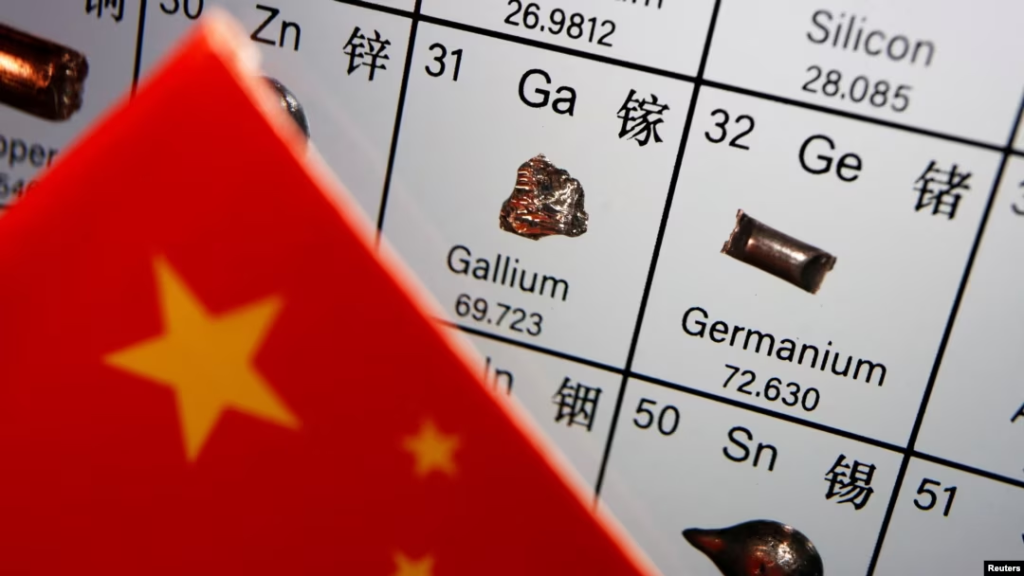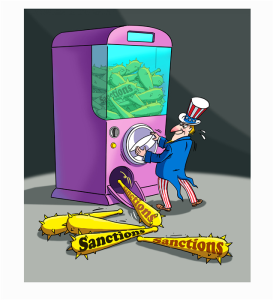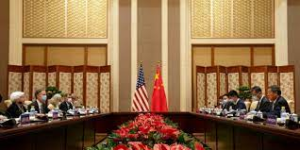U.S. President Joe Biden on Wednesday signed an executive order to double down on his administration’s persistent drive to hobble China’s high-tech advance by barring American investment in the Asian country despite the White House’s repeated “no-decoupling” pledge.

The decision comes when Beijing and Washington are trying to steer their troubled ties back on track. The protectionist move could risk backsliding on the hard-won progress made through high-level exchanges to thaw relations over the past few weeks.
While that might be a price Washington is willing to pay to deter China’s tech advancement, such an order and previous tech bans against Beijing could damage U.S.-China tech ties based on unfounded national security grounds.
Washington wants it both ways: Through broader tech curbs, it intends to freeze Chinese technology and short-circuit Beijing’s semiconductor ambitions. Meanwhile, its companies can still profit from the Chinese market.
However, a curb is a curb, and Washington’s ever-growing restriction list is hardly popular among American business. U.S. tech and financial companies have already voiced their concerns, fearing such curbs could send a chilling effect on cross-border investment in China.
Microchip giants have been lobbying to curtail limitations on their operations in China for months, pressing the government to exercise restraint and weigh the curbs’ impact at a recent White House meeting. The CEOs of three homegrown chip conglomerates — Nvidia, Qualcomm, and Intel — have been “cautioning against heavy-handedness on the U.S. most sweeping export controls yet,” Bloomberg reported.
China also voiced its opposition shortly after the ban was rolled out. The Chinese Ministry of Commerce said the United States restricted outbound investments from its companies, pushing for “decoupling” in the investment sector under the guise of “de-risking,” a complete departure from the principles of market economy and fair competition that the United States has long claimed to champion.
It added that the order has affected the operation and decision-making of enterprises, undermined international trade, and severely disrupted the security of global industrial and supply chains.
The Biden administration should know that stifling China will not help America “run faster.”
The White House has been working to rejuvenate America’s own chipmaking industries and expand its tech edge. Unfortunately, that plan is not working out as intended.
American industrial nationalists dream of reshoring and rebuilding their domestic chip sector. Good luck. Many chipmakers are looking outside of America for options. Intel Capital has, on record, hinted at more investments overseas than on U.S. soil, saying “the world has changed significantly” and “the hub of global technology innovation is no longer limited to Silicon Valley.”
Chances are more firms may follow Intel’s footsteps away from Biden’s longer-term goals of encouraging more chip manufacturing on U.S. soil, business insiders say.
Even if the White House can expand America’s chip-manufacturing capacities, the long sheet of chip export bans on China would render those efforts meaningless.
Many of America’s chip-making firms view China as their biggest market. Statistics show China accounts for around 30 percent of sales at Applied Materials, a quarter at Intel, 20 percent at Nvidia and 60 percent of annual sales at Qualcomm.
“Without orders from Chinese customers, there will be much less need to go ahead with projects such as Intel’s planned factory complex in Ohio,” Intel CEO Pat Gelsinger reportedly told U.S. top officials, according to Bloomberg.
The latest ban would also give a fresh jolt to the global supply and industrial chains and risk further fragmenting the global economy. Additionally, it could harm America’s economy.
In recent years, the United States has courted its allies to quash China’s tech advances and block Chinese tech cooperation with overseas partners.
But shorting China would be costly. According to an internal company document obtained by the German news service Der Spiegel, it would cost the state-owned rail operator Deutsche Bahn up to 400 million euros (440 million U.S. dollars) if it had to replace all components supplied by Chinese telecom giant Huawei across its network.
The International Monetary Fund says the long-term cost of trade fragmentation alone could range from 0.2 percent of global output in a limited fragmentation scenario to almost 7 percent in a severe scenario.
Another reason Washington’s tech war against China will fail is China’s unwavering determination to excel in high-tech development.
“With one hand, the U.S. government is blocking China’s progress on A.I. and supercomputing, but with the other, it is ushering Chinese companies toward concentrating their efforts on chips for products of daily use,” the New York Times commented in a recent opinion piece. “And a world in which Chinese companies dominate the production of mature chips — driven directly by American policy — hardly looks like a victorious outcome for the United States.”
In fact, in today’s world of hyper-interdependence, it is impossible for the world’s top two economies, which enjoy significant economic complementarity, to de-couple from each other.
The United States and China need each other, with both standing to prosper from the relationship for decades to come. There are no winners in a U.S.-China tech divorce.

